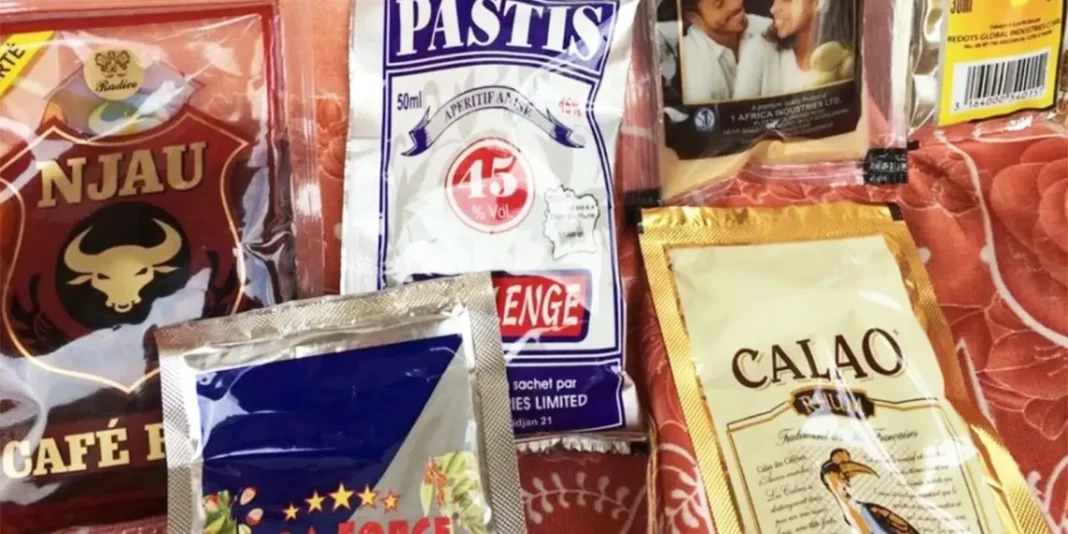Leading public health advocacy organisations have rallied their support with the National Agency for Food and Drug Administration and Control (NAFDAC) over its decision to enforce a ban on alcoholic beverages in sachets and small bottles below 200ml by December 2025.
The Network for Health Equity and Development (NHED), and the Corporate Accountability and Public Participation Africa (CAPPA) have endorsed the policy, describing it as a “long overdue” measure to tackle the dangers behind the purchase of cheap and readily available alcohol, especially among the underage people and vulnerable groups.
The groups’ position was detailed in a joint statement issued on Sunday, 16th November, 2025.
A Fight Against Misuse and Social Vices
NAFDAC has consistently defended the ban, arguing that the products often sold for as low as ₦100 are directly linked to a rise in underage drinking, domestic violence, road accidents, and addiction. The agency, reaffirming its commitment earlier this month following a directive from the Nigerian Senate, viewed the ban as a crucial public health intervention to curb misuse, particularly among youths and commercial drivers.
Strongly hailing this view, NHED and CAPPA accused manufacturers of using low pricing, attractive packaging, and aggressive marketing to flood communities with high-concentration alcohol, making it easily accessible to minors.
Meanwhile, Manufacturers Association of Nigeria (MAN) has vehemently refuted the claims, criticising the policy while warning that such measures could trigger the loss of up to five million jobs, and undermine investments worth over ₦1.9 trillion.
However, the health groups have dismissed MAN’s justification as exaggerated and a familiar scare tactic used by industries globally.
“We reject in its entirety the claims by MAN that the ban will trigger such massive losses,” the groups stated. “These figures are inflated, unverifiable, and designed to pressure the government into prioritising commercial greed over public health.”
They argued that the production process for sachets is largely mechanised, and does not sustain the employment levels claimed by manufacturers.
Firm Implementation, Broader Measures—a Call to Action
The organisations noted that NAFDAC provided a multi-year phase-out window, with the ban first announced in 2024, and now set to end in December 2025. They accused some manufacturers of continuing production in defiance of the directive, hence using economic misinformation to blackmail regulators.
Jerome Mafeni, NHED’s Technical Director, emphasised the long-term societal cost. “It is unacceptable that children can purchase high-concentration alcoholic products for as little as N100,” he said, noting that the harms disproportionately affect poor communities targeted by these products.
Akinbode Oluwafemi, Executive Director of CAPPA, stated that NAFDAC’s decision aligns with global best practices. “No credible public health agency would allow the continued marketing of alcohol in packaging designed to encourage unrestricted, on-the-go, and underage consumption,” he said.
The groups called on President Bola Tinubu and the National Assembly to resist industry pressure to weaken or delay the policy. They also urged for broader alcohol-control measures, including higher taxes, stricter marketing rules, and nationwide public sensitisation on the dangers of alcohol misuse.

